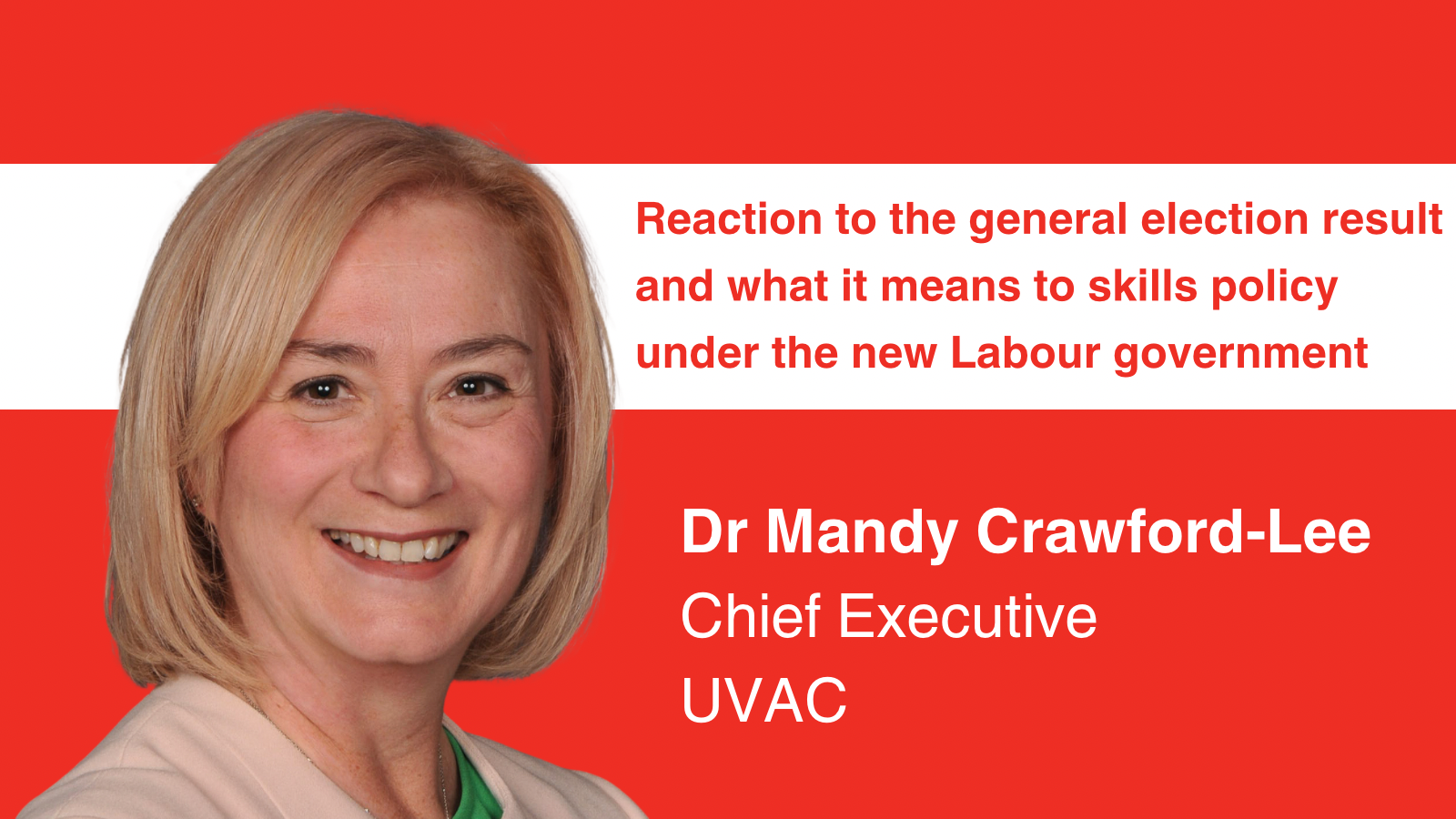UVAC reacts to the general election result
Dr. Mandy Crawford-Lee chief executive for the University Vocational Awards Council (UVAC) reacts to the general election result and what it means to skills policy under the new Labour government.
“One of the core priorities for the new Labour government will undoubtedly be the economy. To deliver significant growth in this area will need it to focus its skills policy on lifelong learning, to raise skill levels and productivity amongst those already in work.
“The development of a high skill, high productivity and high-income economy calls for an emphasis on higher level skills rather than just those at lower level, which we fear Labour may primarily concentrate on. Research we conducted amongst our university members pre-election revealed that a resounding 88% felt that Labour now needs to view higher and degree apprenticeships as vital to addressing the UK skills gap. A further 77% felt that the previous government’s annual apprenticeship budget of around 20% was not enough.
“Given the ongoing challenges Labour has inherited within the NHS and across all public services, raising skill levels in the public sector will be pivotal to improving the delivery of those key services. Four of the seven most popular degree apprenticeships are for public sector occupations – police constable, registered nurse, advanced clinical practitioner and social worker. It would be a little odd for Labour, which sees itself as the party of public sector services, not to champion the use of degree apprenticeships and levy funds to train registered nurses, police constables and social workers.
“Another key economic and skills policy challenge facing the new Labour government is increasing employer funding in training, with UK employers typically investing substantially less in the training and development of their employees than their counterparts in other OECD countries.
“You would also assume that levelling up and addressing social mobility is high on the new government’s agenda. A commitment to an ambitious social mobility policy is vital. To many in the skills sector, social mobility is about supporting individuals from disadvantaged backgrounds to secure an entry-level job. Labour must be more ambitious and ensure that every individual has a pathway to realise their full potential. This means, for example, opening up more pathways to higher level and professional occupations through degree apprenticeships.
“An appropriate skills policy will help to increase productivity and raise economic growth, improve public sector services, deliver the net zero economy and support improvements in social mobility. We look forward to working with the new government and higher education sector to deliver this agenda.”
UVAC is a leading voice on government skills policy and all aspects of higher and degree apprenticeships – representing over 90 university members across the UK.
IN OTHER LATEST NEWS

1 days ago, Amanda Danells-Bewley

1 days ago, Amanda Danells-Bewley
NEWS BY CATEGORY
Get our latest news and events direct to your inbox - join our mailing list
Please enter your details below –


